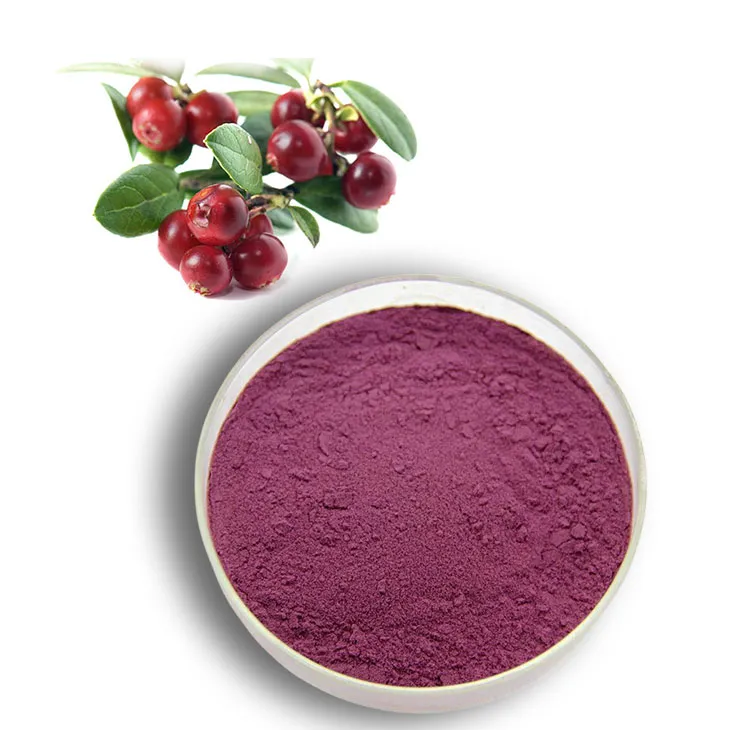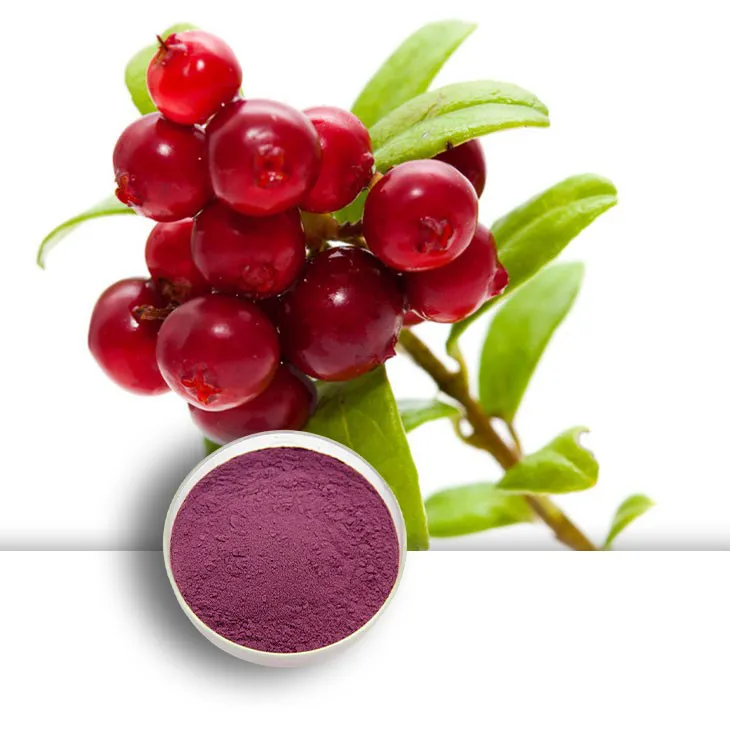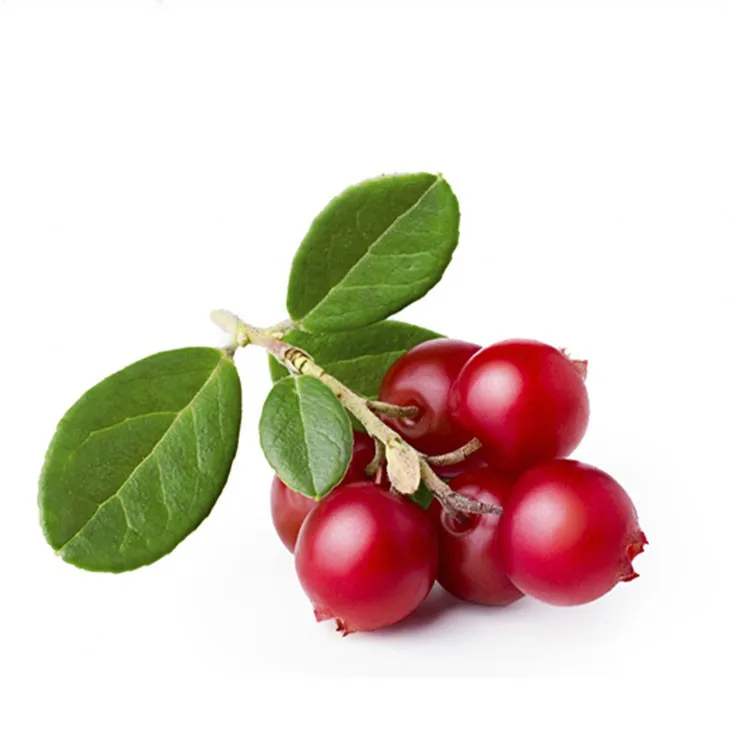- 0086-571-85302990
- sales@greenskybio.com
The best sources of natural bilberry extract.
2024-12-02

Introduction
Bilberry Extract has gained significant popularity in the health and wellness industry. It is known for its numerous health benefits, which are largely attributed to its rich content of anthocyanins and other bioactive compounds. As the demand for high - quality Bilberry Extract grows, it becomes crucial to identify the best natural sources. This article will explore some of the top regions where bilberries are found and why they are considered excellent sources for extraction.

Scandinavia: A Prime Source
Geographical and Climatic Advantages
The native bilberry bushes in Scandinavia are a prime source of Bilberry Extract. Scandinavia, which includes countries like Sweden, Norway, and Finland, offers unique geographical and climatic conditions for bilberry growth. The long daylight hours during the summer months are a significant factor. Bilberries are able to photosynthesize for extended periods, which leads to the production of more nutrients and bioactive compounds. The cold climate also plays a role. It acts as a natural stressor for the bilberry plants, causing them to develop certain defense mechanisms. These defense mechanisms often result in the synthesis of higher levels of anthocyanins and other beneficial substances.
Anthocyanin Content
The bilberries in Scandinavia are renowned for their high anthocyanin content. Anthocyanins are responsible for the deep blue - purple color of bilberries and are also the key to many of their health benefits. Studies have shown that the anthocyanins in Scandinavian bilberries can have antioxidant, anti - inflammatory, and vision - enhancing properties. They can help protect the body against oxidative stress, which is linked to various chronic diseases such as heart disease, cancer, and neurodegenerative disorders. The high anthocyanin content also makes the bilberry extract from this region particularly effective in improving eye health. It can help prevent age - related macular degeneration and cataracts.
Traditional and Sustainable Harvesting
In Scandinavia, there is a long - standing tradition of harvesting bilberries. This traditional knowledge has been passed down through generations and ensures that the harvesting is done in a sustainable manner. The locals are well - aware of the importance of protecting the bilberry bushes and their natural habitats. They typically harvest the bilberries by hand, which helps to avoid damage to the plants and ensures that only ripe berries are collected. This careful harvesting method not only preserves the quality of the bilberries but also contributes to the long - term viability of the bilberry population in the region.

Asia - The Himalayas: A Promising Source
The Ecosystem of the Himalayas
Bilberries from the mountainous regions in Asia, especially the Himalayas, show great potential as a source of high - quality bilberry extract. The Himalayas is a vast and diverse ecosystem that spans several countries, including India, Nepal, and Bhutan. The unique altitude, temperature gradients, and soil conditions in this region create an ideal environment for bilberry growth. The high altitude areas are exposed to intense sunlight, which, combined with the cold temperatures, stimulates the production of bioactive compounds in bilberries. The soil in the Himalayas is rich in minerals, which are absorbed by the bilberry plants and contribute to their nutritional value.
Unpolluted Environment
One of the major advantages of bilberries from the Himalayas is the unpolluted environment in which they grow. Due to the relatively low levels of industrialization and human interference in the high - altitude regions of the Himalayas, the bilberries are not exposed to pollutants such as pesticides, heavy metals, and industrial chemicals. This ensures that the bilberry extract obtained from these berries is pure and free from harmful contaminants. The clean environment also means that the bilberries can fully express their natural characteristics and bioactive potential, making the extract highly beneficial for health.
Ethnobotanical Significance
In the Himalayan region, bilberries have long been used in traditional medicine systems. The local communities have a deep understanding of the medicinal properties of bilberries and have been using them to treat various ailments for centuries. This ethnobotanical knowledge provides valuable insights into the potential health benefits of bilberry extract. For example, bilberries are often used in traditional remedies for digestive problems, eye disorders, and as a general tonic to boost immunity. The traditional use of bilberries in the Himalayas further supports the idea that they are a valuable source of high - quality bilberry extract.

Australia: A Reliable Source
Well - Managed Plantations
In certain parts of Australia, well - managed bilberry plantations can be a reliable source of bilberry extract. These plantations are carefully planned and maintained to ensure optimal growth conditions for bilberries. The growers use modern agricultural techniques to control factors such as irrigation, soil fertility, and pest management. By carefully managing these aspects, they can produce bilberries with consistent quality and high levels of bioactive compounds.
Sustainable Practices
Australian bilberry plantations often focus on sustainable practices. This includes measures such as water conservation, soil conservation, and the use of environmentally friendly pest control methods. For example, many plantations use integrated pest management strategies that rely on natural predators and biological control agents rather than chemical pesticides. This not only protects the environment but also ensures that the bilberry extract produced is free from pesticide residues. Sustainable practices also extend to the harvesting process. The plantations typically use mechanical harvesting methods that are designed to minimize damage to the plants and ensure efficient collection of ripe berries.
Quality Control and Research
Another advantage of Australian bilberry sources is the emphasis on quality control and research. The growers and producers in Australia are often subject to strict regulatory standards for food and supplement production. This ensures that the bilberry extract meets high - quality requirements in terms of purity, potency, and safety. Additionally, there is ongoing research in Australia on bilberry cultivation and extraction techniques. This research aims to further improve the quality of bilberry extract, optimize production processes, and explore new potential health benefits of bilberry - based products.
Conclusion
In conclusion, Scandinavia, the Himalayas in Asia, and certain parts of Australia are all excellent sources of natural bilberry extract. Each region offers unique advantages, whether it is the long daylight hours and cold climate in Scandinavia, the diverse ecosystem and unpolluted environment in the Himalayas, or the well - managed plantations and sustainable practices in Australia. The high - quality bilberry extract obtained from these sources can provide a wide range of health benefits, making it a valuable addition to the health and wellness market. As the demand for natural and effective health products continues to rise, it is important to recognize and preserve these valuable sources of bilberry extract.
FAQ:
What makes Scandinavia a good source of natural bilberry extract?
The long daylight hours and cold climate in Scandinavia contribute to the unique composition of bilberries. This results in bilberry extract rich in anthocyanins and other beneficial substances, making it a prime source.
Why are bilberries from the Himalayas considered a great potential source?
The Himalayas are in a mountainous region in Asia with a diverse ecosystem and unpolluted environment. These factors allow the bilberries there to thrive and develop a high - quality extract, thus showing great potential.
How do well - managed bilberry plantations in Australia ensure the quality of bilberry extract?
Well - managed bilberry plantations in Australia often focus on sustainable practices. These practices help ensure the production of pure and effective bilberry extract, making them a reliable source.
Are there any other regions known for good natural bilberry extract sources?
While Scandinavia, the Himalayas region in Asia, and certain parts of Australia are known for good sources, there may be other regions as well. However, these three areas are currently recognized for their unique qualities in producing high - quality bilberry extract.
What are the main benefits of bilberry extract from these natural sources?
Bilberry extract from these natural sources, such as those from Scandinavia, the Himalayas, and Australia, is rich in anthocyanins. Anthocyanins are known for their antioxidant properties, which can help with eye health, cardiovascular health, and may have anti - inflammatory effects.
Related literature
- The Natural Sources of Bilberry Extract and Their Health Implications"
- "Anthocyanin - Rich Bilberry Extract: A Review of Sources and Benefits"
- "Scandinavian Bilberries: Unraveling the Secrets of Their Extract"
- "Bilberry Extract from Asian Highlands: Composition and Quality"
- "Sustainable Bilberry Plantations in Australia: A Source of Quality Extract"
- ▶ Hesperidin
- ▶ Citrus Bioflavonoids
- ▶ Plant Extract
- ▶ lycopene
- ▶ Diosmin
- ▶ Grape seed extract
- ▶ Sea buckthorn Juice Powder
- ▶ Fruit Juice Powder
- ▶ Hops Extract
- ▶ Artichoke Extract
- ▶ Mushroom extract
- ▶ Astaxanthin
- ▶ Green Tea Extract
- ▶ Curcumin
- ▶ Horse Chestnut Extract
- ▶ Other Product
- ▶ Boswellia Serrata Extract
- ▶ Resveratrol
- ▶ Marigold Extract
- ▶ Grape Leaf Extract
- ▶ New Product
- ▶ Aminolevulinic acid
- ▶ Cranberry Extract
- ▶ Red Yeast Rice
- ▶ Red Wine Extract
-
Grapefruit Seed Extract Powder
2024-12-02
-
Chaste Berry Extract
2024-12-02
-
Apricot Powder
2024-12-02
-
Propolis Extract Powder
2024-12-02
-
Curcuma Longa Extract
2024-12-02
-
Rose Hip Extract
2024-12-02
-
Saponin Extract
2024-12-02
-
Phyllanthus Emblica Extract
2024-12-02
-
Horse Chestnut Extract
2024-12-02
-
Quercetin
2024-12-02





















